Billy Budd, Sailor by Herman Melville
Why It's a Masterpiece (Week 20)
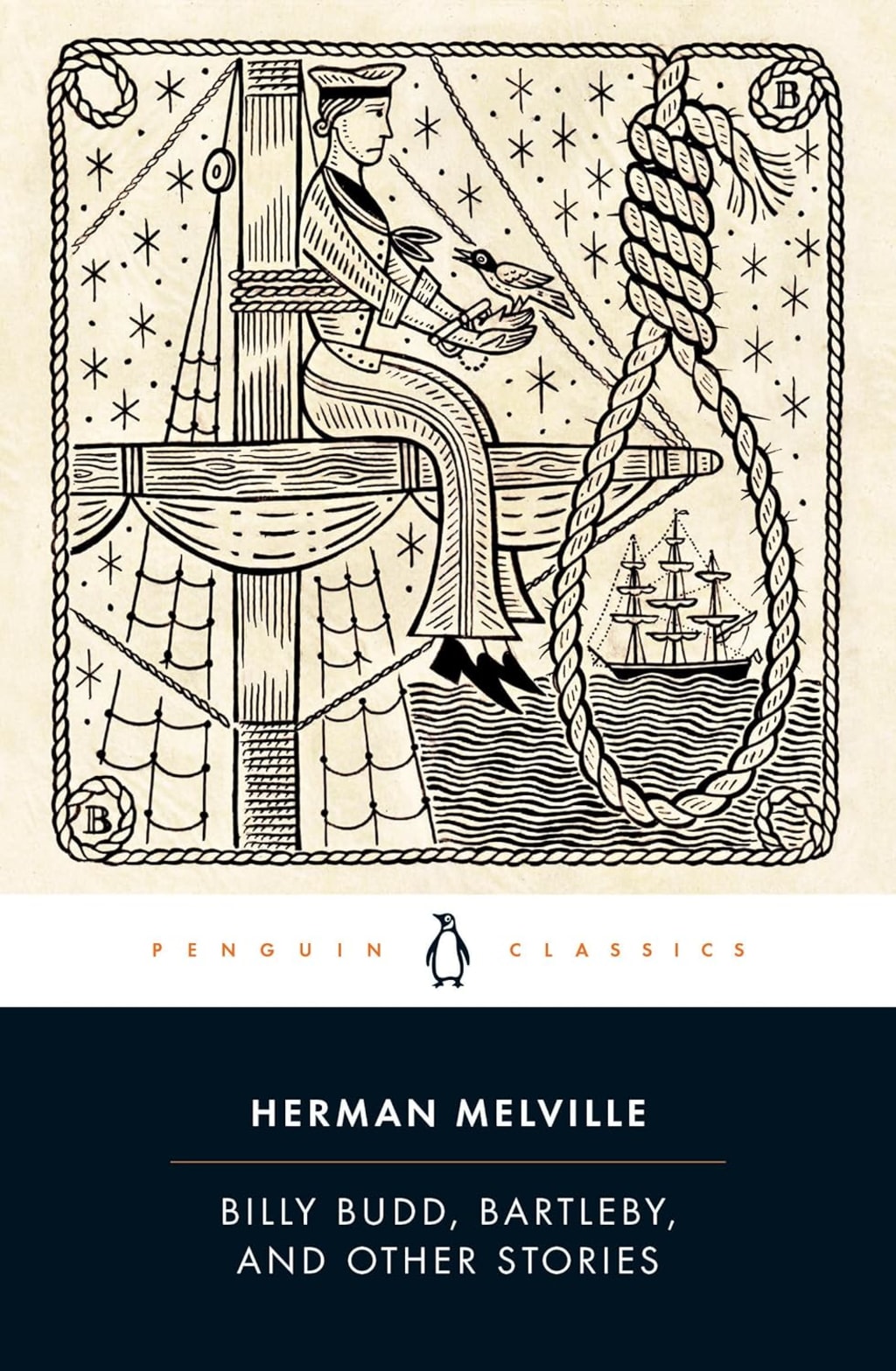
Possibly most famous for being the unfinished work of Moby-Dick writer, Herman Melville - it was upon his death in 1891, not considered for publication. It was finally published in its entirety in 1924 in London after being found among the author's belongings. It went on to be published in Chicago in 1962 and quickly rose to fame as being the second most read book by Melville after his novel Moby-Dick.
I remember reading Billy Budd, Sailor when I was younger and my first thought was about how much respect Herman Melville had for the sea and how much power it has to not only be a sublime faction of terror but, it may also cause people to act irrationally. When we picture ourselves on the sea, there is nothing around us and so, the fate of the main character is left up to people who are probably not in their right minds - even if they are trying to follow the rules.
Plot:
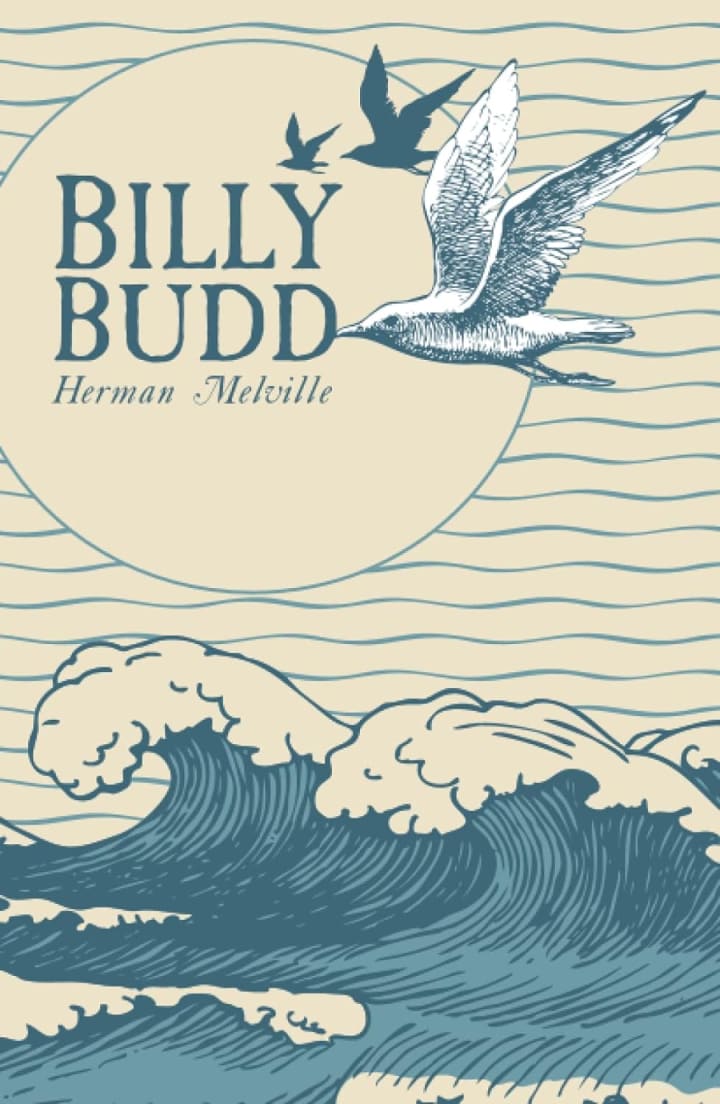
The year is 1797 and Billy Budd is put on a ship called the HMS Bellipotent in service - it is a ship like others, threatened by the constant looming of the French army. And, when he says goodbye to the older ship he was on, he shouts his goodbyes in good fortune. The older, smaller ship was called The Rights of Man, named for the Thomas Paine book about morality and justice. Something of a foreshadowing in this text.
Billy Budd comes from Bristol and is quite a charming man. He has a stutter but apart from that, he is fairly friendly. This makes him a popular worker amongst his peers and we, as readers, are quite fond of him too. He draws the attention of the master-at-arms John Claggart for all the wrong reasons. Claggart is this classic villainous character who possesses none of the good qualities that Billy Budd does. He is a hateful man with a natural disliking about him that makes him especially vile. He is envious of Billy Budd for having such charisma and likeability that Claggart himself cannot possess.
This leads Claggart to falsely accuse Billy Budd of conspiracy to commit mutiny and thus, Edward Fairfax Vere (the captain), summons Billy Budd to defend himself and explain what the charges pertain to. But, Claggart has already planned his case and Billy Budd is unable to respond to these claims, his stutter and shock getting in the way. Billy Budd ultimately strikes Claggart, killing him instantly.
Vere calls for a court where he will serve as the sole witness to the case. Though they are all aware of Billy's moral innocence, they all also believe that Billy should be convicted under the law. And though none of them really believed Claggart's claim about Billy's conspiracy to commit mutiny, that still does not change the fact that he killed someone. Billy Budd is thus sentenced to be hanged the following morning. Billy is sympathetic and cries out that god should bless the captain.
The final few chapters deal with the death of Captain Vere and then, two shorter chapters which deal with the varying images of Billy Budd presented both by media and unknown sailors aboard the same ship. Presenting ambiguity was one of Herman Melville's great talents and it should not be dismissed here either.
Into the Book:
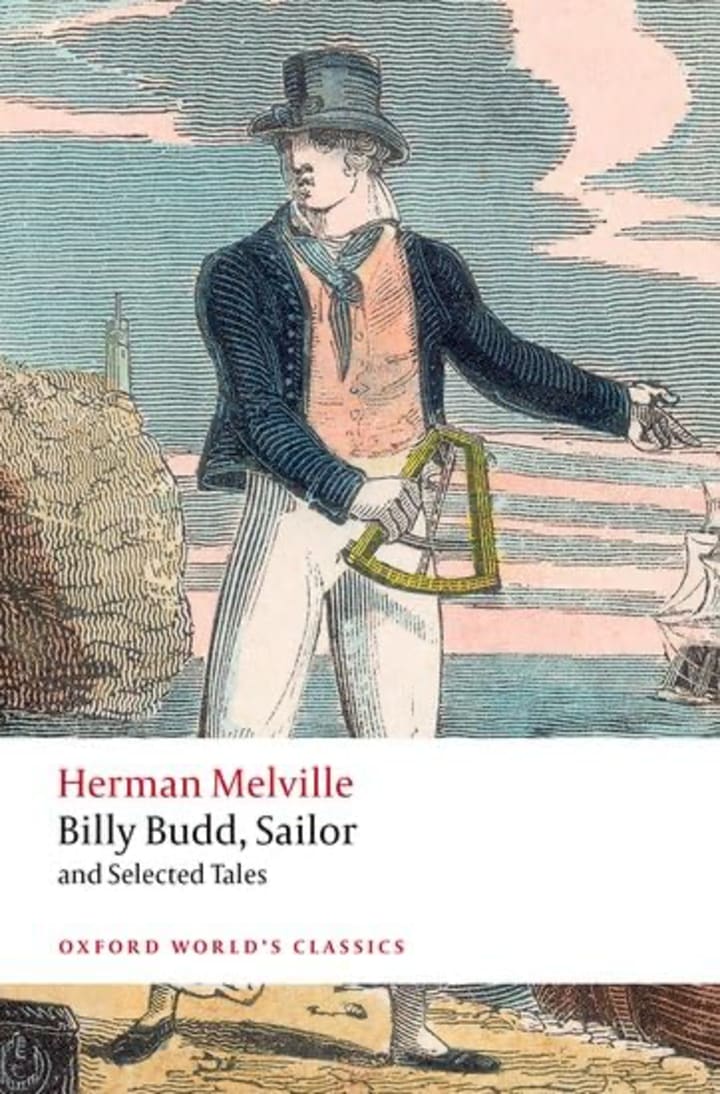
There are many great themes, motifs and symbols in the novella and the first one I want to cover is possibly the most obvious of them all: Christian Allegory. This is put forward by the characters and what they represent. For example: Captain Vere is examined to be a Pontius Pilate figure who puts the law before his own sense of morality, convicting a man who's only real crime was that he was too popular. (And unfortunately executing him did not fix that and probably made him ever more popular).
Christ's story of suffering and death in the crucifixion is very similar to the one Herman Melville writes of Billy in the novella to the point that you cannot ignore the fact the latter may have been inspired by the Biblical story. Billy Budd is the same image of an innocent victim within a hostile society that refuses to accept morality. Claggart however, is the figure of Satan who constantly tempts others to do wrong and thus, has a deceptive image as well. He is not especially ugly but he is also not very much liked by the others and so, they are cautious of him. On top of that there is that comparison of Claggart's dead body to the corpse of a snake and so, I'll leave that up to the imagination of the reader - but it is really quite something for analysis.
For what can more partake of the mysterious than an antipathy spontaneous and profound such as is evoked in certain exceptional mortals by the mere aspect of some other mortal, however harmless he may be, if not called forth by this very harmlessness itself?
- Billy Budd, Sailor by Herman Melville
This makes the next theme very apt to move on to: innocence. Billy Budd is an innocent almost child-like figure who has faults that tend not to be of his own doing. Whereas, then we have Claggart whose faults are entirely out of his own prejudices and envy of Billy. This is an interesting dichotomy as it makes the reader realise that no matter what kind of differences these sailors had apart from each other, the respect they had for Billy was one clearly earned through Billy's innocence and kindness. The out of character nature that Billy displays therefore in the more violent part of the book allows the reader to analyse what Billy was actually trying to achieve in the situation as opposed to what actually happened.
What Billy wanted to happen was possibly nothing as his behaviour of punching Claggart was so incredibly wild that as readers what we know of this is that Billy has now been pushed to a limit that even the other sailors have not seen before. However, what actually happened is that Claggart died and even as he is being sentenced, he accepts responsibility for the law of the sea which should see him hanged. He blesses his captain and takes to the gallows instead of fighting against it. This means that Billy's innocence does not die with the punch he gave Claggart. Instead, he has retained it through accepting responsibility for the action even if the action was completely unintended and caused by an outside force of being pushed to his absolute limit and being accused of something he did not do.
All the other characters understand this too as they refer to Claggart's death in a very strange way in which there is no sympathy shown to Claggart at all. Take a look at this quotation:
"Struck dead by an angel of God! Yet the angel must hang!"
- Billy Budd, Sailor by Herman Melville
A connected theme therefore is justice and authority. As the captain, it is clear that Vere does not actually want to execute Billy Budd but knows that due to Claggart's death, he must. An unwritten acceptance amongst everyone around him, including Billy Budd himself is that Billy Budd must die for what he has done because that is the will of the law. The power of the law at sea therefore comes into question as how important it is to maintain order when in a situation so prone to chaos. Each main character bar Claggart grapples with this morality and authority in some way. Captain Vere probably does more than anyone as even after Billy Budd's death, he still remembers him in his own demise.
"Ay, the foretopman is sweep clean out of the ship. Billy's deed, whatever it was, though done in heat, or in high spirits, or in despair, had affected none but himself."
- Billy Budd, Sailor by Herman Melville
Why It's a Masterpiece
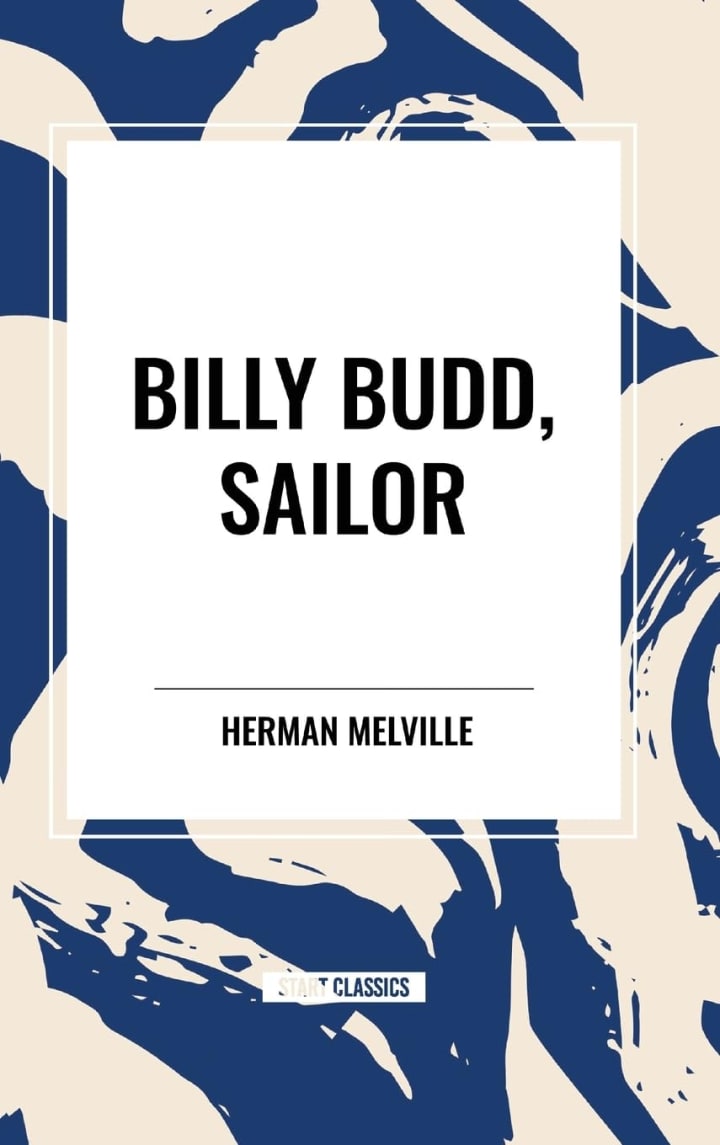
As we know, Melville's writing about the sea is his forte. The descriptions contained within the novel Moby-Dick have to be some of the most incredible and breathtaking descriptions of nautical expedition that have ever been penned in literary history. Billy Budd, Sailor is no exception to this. Despite its posthumous publication, it has become the second most widely read piece of literature by the author and despite not having quite a proper ending, has gathered readers from every corner of the globe.
Masterfully investigating the morality arguments of what is done at sea and how this can impact the collective responsibilities of the men on board, what those responsibilities are and whether man will ever be the same once he steps back on to land are just some of the ideas explored by Melville's seafaring texts. One thing that makes Billy Budd, Sailor stand out though is that there is that constant question of the military authority and whether it was correct by morality to hang the sailor. It may have been correct by law, but all laws must be rectified over time to suit the situation. The question of whether it was right or wrong is basically the beating heart of the text. Much like Christ upon the cross, the executioners must bear the burden for the rest of their lives.
Conclusion
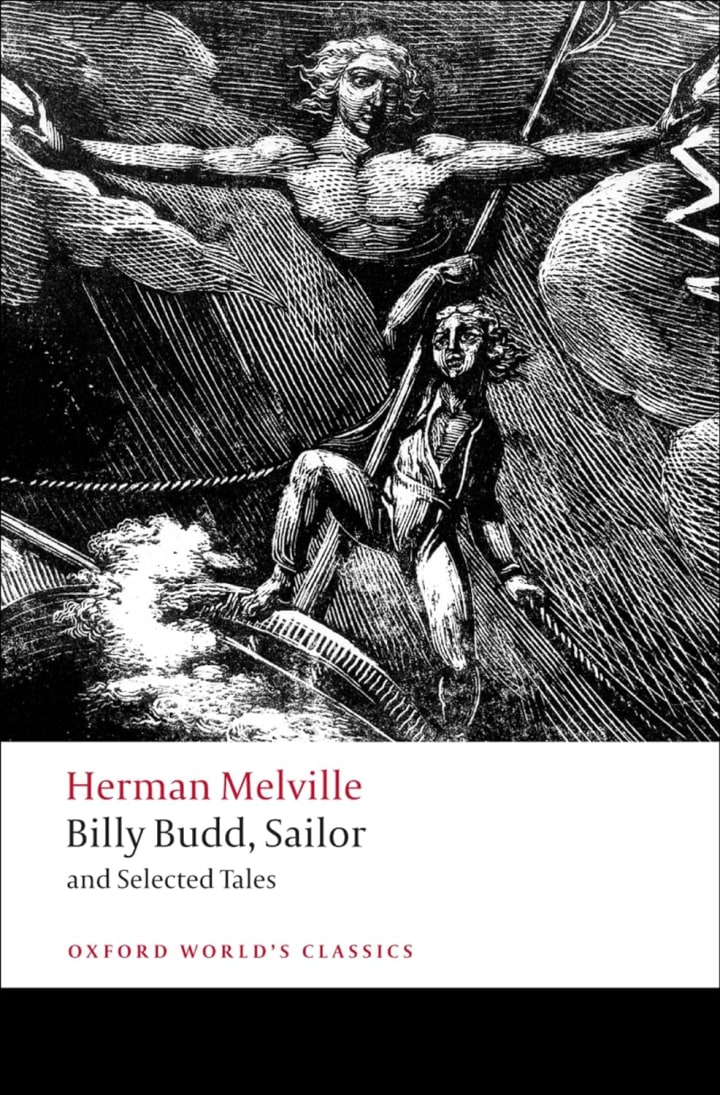
Billy Budd, Sailor is an amazing work of nautical fiction that, even though it is widely read in Meville's repetoire, is still vastly underappreciated. I would recommend for those of you who love philosophical fictions with heavy descriptions, atmosphere and detailed arguments of morality - you read this text as soon as possible. It is one of those that must be felt in the bones to be truly understood.
Next Week: The Jungle by Upton Sinclair
About the Creator
Annie Kapur
200K+ Reads on Vocal.
Secondary English Teacher & Lecturer
🎓Literature & Writing (B.A)
🎓Film & Writing (M.A)
🎓Secondary English Education (PgDipEd) (QTS)
📍Birmingham, UK
X: @AnnieWithBooks
Enjoyed the story? Support the Creator.
Subscribe for free to receive all their stories in your feed. You could also pledge your support or give them a one-off tip, letting them know you appreciate their work.




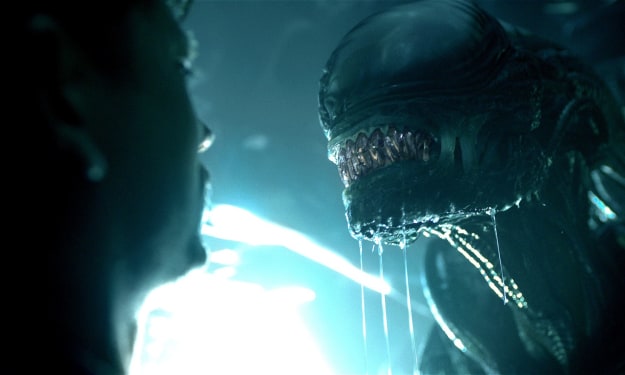

Comments (1)
I was always on the fence about this one. Some of his shorter pieces and most of MD were more interesting to me. But I like your breakdown of this text and the comparison with Christ and the Devil. Maybe I should take another look?